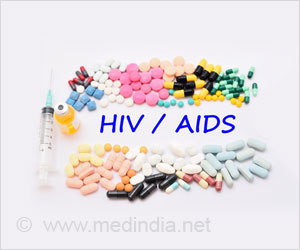With millions of AIDS victims also facing a food crisis, the fight against HIV/AIDS is getting a lot tougher, warned a UN agency official.
With millions of AIDS victims also facing a food crisis, the fight against HIV/AIDS is getting a lot tougher, warned a UN agency official.
The food crisis has an "impact on the real income of poor people, that will go down in relative or in absolute terms because the prices go up," said Martin Bloem, an expert on nutrition and HIV/AIDS from the World Food Programme (WFP).Poor people already spend 60 to 70 percent of their income on food, he told participants of the 15th ICASA conference on HIV/AIDS in Africa on Friday.
High prices force them to cut costs for instance by cutting expensive animal products like meat and eggs from their diet.
"As a result of that they will increase the mineral deficiencies (that) already (exist in) their families," said Bloem.
The immune systems of the people will be affected, especially in children and vulnerable groups, the nutritionist warned.
"You will see an increase in tuberculosis and a deterioration in people living with HIV," Bloem said.
Advertisement
Besides this direct effect of the food crisis there are also many indirect effects which weigh on AIDS patients, studies have shown.
Advertisement
The WFP sees another worrying trend where women swap sex for food and often have sex without using condoms.
"Women sometimes want to maintain the income for their family and go into sex work, the risk behaviour can change because people are so hungry," according to Bloem.
"If they don't do it there will be nothing to eat in the house. Everything has become so expensive," Olivia, who works for a anti-AIDS NGO in the Central African Republic, said.
"They do not have the strength or the courage to cultivate land or start a little street stall. They have to sell their bodies to feed their families," Olivia, not her real name, said.
"They live from day to day. If we find food today we eat, tomorrow we'll see what happens."
Her co-worker Petula, also not her real name, told AFP that the rising cost of living "boosts prostitution" among young people.
"The parents agree to it. When the girl goes out at night and comes back with 5,000 or 10,000 CFA francs (7.50 or 15 euros, 9.50 or 19 dollars) she gives it to the family," she said.
"Her father is glad to see his child bring home money every day."
Sub-Saharan Africa is home to 22 million people living with HIV, which translates into an average of five percent of the population.
From country to country HIV prevalence varies widely. Swaziland has the highest percentage of HIV infections, 26 percent of the adult population. Neighbouring South Africa houses the biggest absolute number of infected people with 5.7 million.
For the fight against AIDS in Africa "the food crisis has an impact on prevention, treatment, care and support" for patients, said Peter Atekyereza, a Ugandan sociologist who studies the impact of the food crisis on the AIDS pandemic.
According to studies done in Botswana, Swaziland and Tanzania high food prices have driven people to risky sexual conduct, like prostitution, to get food, and sometimes to migrate.
"High food prices (work against) efforts for effective management of risks of HIV/AIDS," Atekyereza said.
Source-AFP
SAV












